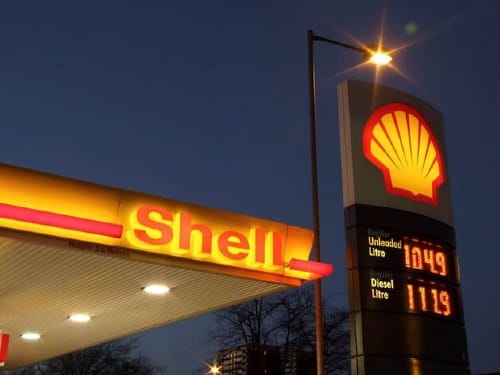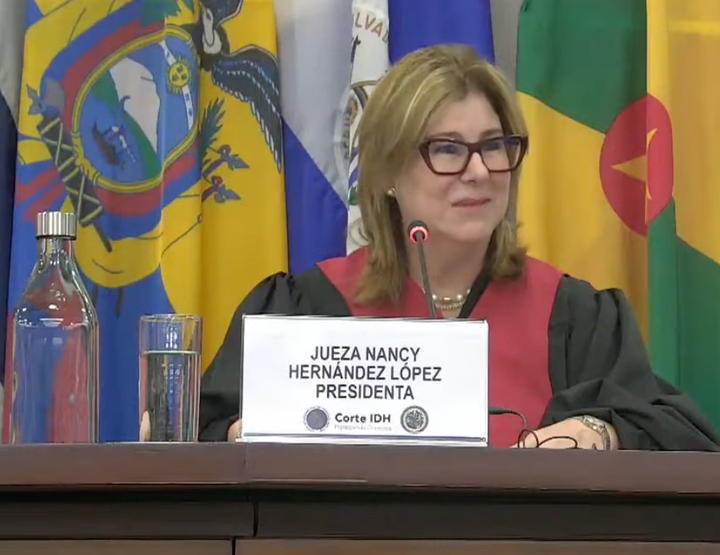In 'Dutch vs. Shell' Case, Fossil Fuel's Future Is On Trial

In groundbreaking climate case, 17,000 Dutch citizens and several environmental groups have asked the Hague to rule that Europe's biggest oil-and-gas firm must abide by the Paris Accord's goals.
Story originally published by Drilled News
Five years after nearly 200 nations adopted the Paris climate agreement, a coalition of seven Dutch environmental group and more than 17,000 co-plaintiffs are facing off in civil court at The Hague against Royal Dutch Shell for continuing to do business in ways that undermine the pact’s goal to limit global temperature rise to well below 2 degrees C (3.6 degrees F).
If they win, the plaintiffs say, the decision will establish that Shell is responsible under both the Paris pact and human rights law to rapidly reorient its business away from oil and gas production.
The plaintiffs in the case, Milieudefensie v. Royal Dutch Shell, specifically claim that Shell — the largest oil corporation in Europe and among the top five largest in the world — has breached the “duty of care,” a principle enshrined in Dutch law, and violated Articles 2 and 8 of the European Convention on Human Rights, which protect the rights to life and to private and family life. They are seeking a court order compelling Shell to reduce its carbon emissions 45% by 2030 and completely by 2050, in alignment with the Paris accord.
“Success is Shell being forced by the court to accept binding CO2 targets reflecting the Paris climate agreement,” said Donald Pols, director of Milieudefensie/Friends of the Earth Netherlands, the environmental organization leading the case.
The case, which has been conducted over four hearings since Dec. 1, could also have reverberations throughout the fossil fuel industry.
“While it is taking place in the Netherlands under Dutch law, the implications go much wider,” said Sara Shaw, the coordinator of climate and energy campaigns at Friends of the Earth International. “Our hope is that this case sparks a wave of climate litigation globally that can hold other carbon majors to account and help bring about the end of the fossil fuel age.”

This case, which was first filed in 2019, builds upon an historic climate lawsuit brought by the Urgenda Foundation and Dutch citizens, in which the Dutch Supreme Court ruled that the national government was accountable to making more stringent emissions cuts. This decision set an important legal precedent in finding that failure to rapidly rein in carbon emissions constitutes a human rights violation.
Anne Hellendoorn, a 17-year-old environmental science student and one of the thousands of Dutch citizens who signed on to the current case, said she hopes it will make Shell realize that “they can actually be held accountable” for their business conduct.
“Shell must stop finding all these new fossil fuel reservoirs and destroy the nature around it, and start finding renewable alternatives,” she said.
Shell, which is headquartered in the Netherlands, is claiming both in and outside of court that it is aiming to meet the Paris goals “in step with society.” Shell touts on its website and in social media advertising what it calls its “climate ambition” to achieve net-zero carbon emissions across its business by 2050.
A Shell spokesperson said that the company “is playing its part” in addressing climate change, and arguing in court that when consumers and national governments lead the push to slash carbon emissions, Shell will follow.
Shell’s spokesperson pointed to “effective policy, investment in technology and changing customer behavior” as the key pieces for accelerating the world’s transition to cleaner energy in time to meet Paris targets, rather than the company changing its own practices.
“What they try to do is convince the court that their ambitions are and will be sufficient to reach the Paris goals,” said Arjan de Boer, press officer for Milieudefensie. Meanwhile, Shell is continuing to plow capital into new offshore oil projects.
While it’s not yet clear how The Hague’s judges are receiving Shell’s argument, the oil major’s “personal responsibility” message recently earned the firm biting backlash on social media. A Twitter poll Shell posted in early November that asked, “What are you willing to change to help reduce emissions?” went viral, but not in Shell’s favor.
Instead, Twitter users picked up on responses by climate advocates and activists including Swedish teen Greta Thunberg, Rep. Alexandria Ocasio-Cortez, and climate scientist Katharine Hayhoe, that called out Shell’s own responsibility for climate change.
“I’m willing to hold you accountable for lying about climate change for 30 years when you secretly knew the entire time that fossil fuels emissions would destroy our planet,” Ocasio-Cortez tweeted in response.
While 199 people voted in Shell’s poll, and just over a thousand “liked” the tweet, Ocasio-Cortez’s response got more than 396 thousand likes and was shared more than 57 thousand times.
I’m willing to hold you accountable for lying about climate change for 30 years when you secretly knew the entire time that fossil fuels emissions would destroy our planet □ https://t.co/ekj1Va1Cp0November 2, 2020
The lawsuit exposes this kind of “greenwashing,” said Hellendoorn. “Shell is currently acting like it’s being really green and good for the environment, but the numbers show that that is definitely not the case.”
The Guardian reported in January that Shell has spent more than $120 billion on fossil fuel projects over the past four years. At that time the firm was on track to spend a fraction of that amount on clean energy expansion, just $2 billion, by the end of 2020, according to The Guardian, although it had told investors in 2017 that it would spend about three times that amount.
“Shell and other fossil fuel corporations want to evade their responsibility to act on climate change, and to push the blame onto consumers for using energy,” Shaw said. “Yet Shell’s own leaked documents reveal that they have known about the impacts of their actions in causing climate change for decades, and that they even predicted a lawsuit against them by environmentalists.”
The Dutch lawsuit against Shell is one of the few lawsuits targeting major oil and gas companies over the climate crisis outside the U.S. The French oil major Total is currently facing a lawsuit in France brought by environmental NGOs in that country.
Shell is also a defendant in more than a dozen climate accountability lawsuits in the U.S., brought by municipalities, states, and a West Coast commercial fishing association. These lawsuits focus on fossil fuel companies’ deliberate campaigns to undermine climate science and downplay the risks of burning coal, oil and gas. The U.S. cases have so far been tied up in procedural battles.
Nikki Reisch, director of the Center for International Environmental Law’s climate and energy program, believes that if The Hague decides for Shell, the high-profile nature of the case still sends an important message.
“It’s really about debunking the myth that changing business conduct to avert climate catastrophe is optional or voluntary in some way,” she said. “Companies can no longer get away with knowingly profiting at our collective peril.”
But a ruling against Shell, said Reisch, “would send a very strong signal to other companies similarly positioned, in terms of their impacts and their knowledge of their operations on the environment, that they face a real risk of liability if they don’t change course immediately.”


